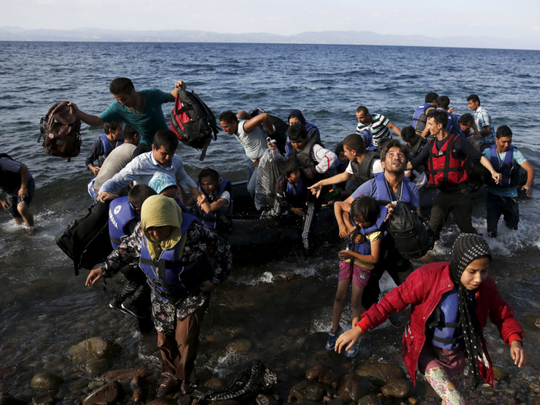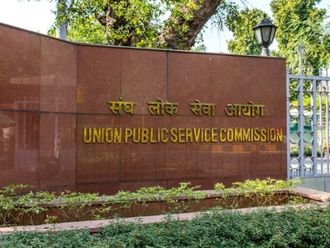
A photograph of an anguished ‘migrant’ holding fast to his frightened children underscores the suffering of those who risk their lives crossing the Mediterranean more than words ever can. The majority of those heading for the shores of Greece and Italy are wrongly being labelled migrants when they are, in fact, refugees. Most are Syrians and Afghans fleeing violence-stricken zones.
They are desperate to feel safe. They’ve experienced more horrors than most of us can ever imagine. They deserve all the help they can get. They’re not scroungers; they’re not terrorists or criminals. Yet, more often than not people who once had homes, businesses, professions and successful careers are being treated like human detritus, looked down upon by resentful authorities and populations concerned their country is being overrun by foreigners looking for handouts.
Propelled by hope and a prayer they’re lured by unscrupulous human traffickers to take perilous journeys to Europe for a life free from fear and hunger. Thousands are lost to the sea. Mercenary crews jump ship after scuttling the vessel, leaving terrified women and children to their fate. Just days ago eight traffickers were arrested in Italy for forcing their human cargo to remain inside the hold of a fishing boat using kicks to the head of anyone who tried to come out. 49 died from toxic engine fumes.
The euphoria of those who make it to the shore very quickly evaporates when they discover they’re unwelcome. On arrival they’re assigned a number before being processed and taken to reception centres that are in some cases virtual prisons. As recently reported by the Guardian, 2000 Syrians were locked-up in a stadium on the Greek island of Kos for 16 hours without water, food or toilet facilities. The island’s mayor was unrepentant; he’s said he begrudges having to give them a bottle of water. Others are left to fend for themselves on the streets, sleeping rough and begging for food.
To be fair, cash-strapped Italy can’t cope with the influx while Greece is currently having a hard time taking care of its own. Both countries have little to offer in the way of benefits or jobs. With no means or prospects for life, refugees invariably head for more prosperous northern Europe, in particular, Germany and Scandinavia, more often than not via Macedonia where they are considered “illegal immigrants” and have been detained in “degrading conditions” according to Amnesty International.
Given the burgeoning numbers (21,000 travelled that route last year alone) Macedonia instituted the practice of issuing three-day passes to allow migrants to cross the country en route to Serbia and Hungary which is a member of Europe’s Schengen Area — and, therefore, a gateway to other countries in the EU. Hungary that’s also been guilty of illegal detentions is now constructing a razor-wire border fence and introducing legislation to deny asylum to migrants who have transited through a third country considered “safe” such as Serbia.
Hungary’s decision to block the passage of asylum seekers has panicked the Macedonian Government into announcing a state of emergency in two of its border regions. Thousands are sleeping around rail tracks, including babies and toddlers in temperatures of over 30 degrees centigrade. Most have little chance of being permitted to board trains.
The scramble of desperate humanity has been met with tear gas and stun grenades fired by police. Once again, people who through no fault of their own have been terrorised into fleeing their homelands are coming under attack. They have little money, few possessions, no food, no water and no baby milk. They have no wish to harm anyone, yet they are being treated worse than rabid dogs, while the world averts its eyes.
Admittedly, Germany is doing its bit. The government says it can cope with the expected arrival of up to 800,000 this year. Other countries are failing to step up to the plate. Chancellor Angela Merkel has asked Britain to shoulder its responsibilities. The UK has declined to share in the EU’s efforts to distribute migrants in the grounds it’s not part of the Schengen area.
Britain is keen to pull up the drawbridge and to that end, recently signed an agreement with France to create a joint command centre to thwart migrants from entering the UK through the Channel Tunnel.
In the short term, much more needs to be done collectively to treat asylum seekers with dignity and to care for their needs. But that’s just a sticking plaster over the sore. Refugees don’t pack up and leave everything for the unknown without a reason. Until the international community gets it act together to help resolve the sectarian violence and terrorism in their own countries, there’ll be no end to the heartache of those seeking sanctuary or the worsening social and economic burden they place on European countries.
Linda S. Heard is a specialist writer on Middle East affairs. She can be contacted at lheard@gulfnews.com








